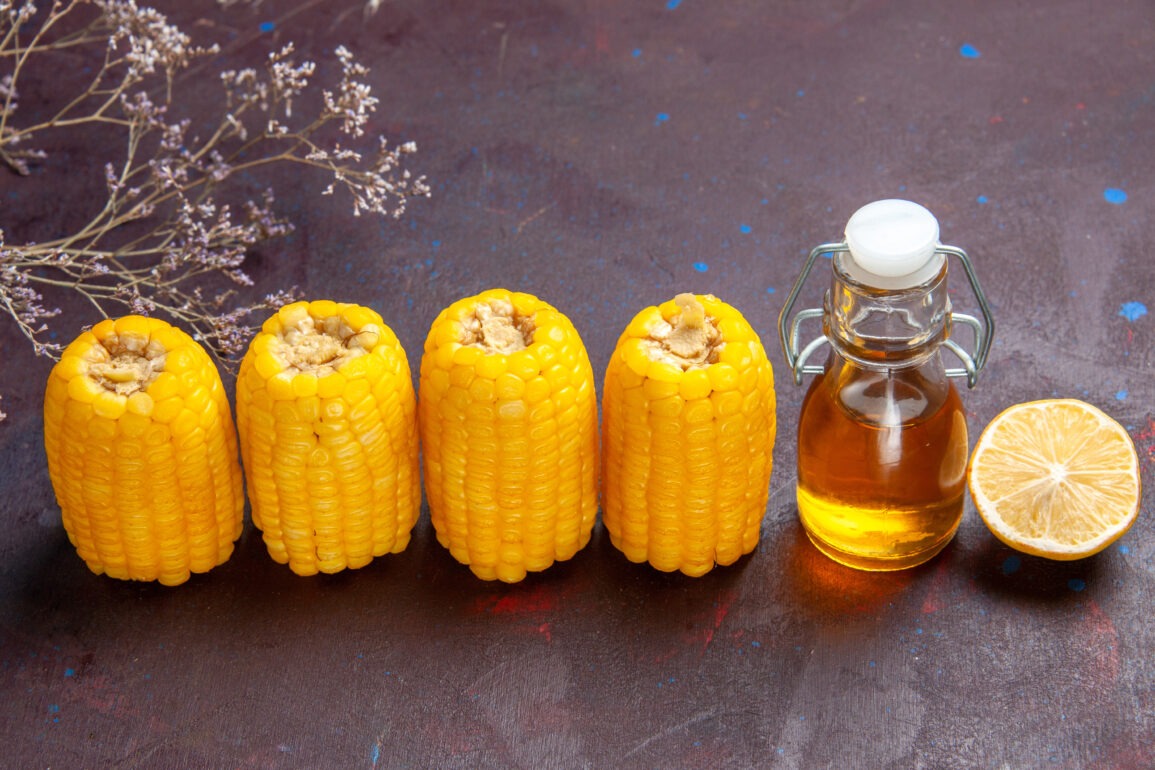Corn, also known as maize, is a staple food with a rich history and numerous health benefits. Packed with essential nutrients, fiber, and antioxidants, corn provides significant health advantages when incorporated into a balanced diet. From supporting heart health to enhancing digestion and boosting immunity, corn is more than just a delicious vegetable; it’s a powerhouse of nutrition.
Introduction to Corn and Its Nutritional Value
Corn has been cultivated for over 9,000 years, originating in Central America and spreading globally as one of the world’s essential staple crops. Today, corn is consumed in various forms—sweet corn, popcorn, and even cornmeal—making it a versatile ingredient for countless dishes.
Corn is naturally gluten-free and rich in essential vitamins and minerals, providing health benefits across multiple systems in the body. Each variety of corn contains unique properties, yet all share a common nutritional foundation that makes them valuable for overall health.
Nutritional Composition of Corn
Corn’s nutritional profile varies slightly by type, but in general, corn is low in fat, high in carbohydrates, and offers a balanced amount of protein. Its fiber content supports digestion, while its array of vitamins and minerals contributes to various physiological functions.
| Nutrient | Amount (per 100g) | Health Benefit |
|---|---|---|
| Carbohydrates | 19g | Provides energy |
| Protein | 3.4g | Supports muscle growth and repair |
| Fat | 1.5g | Essential fatty acids |
| Fiber | 2.7g | Promotes digestive health |
| Vitamin C | 6.8 mg | Boosts immune function |
| Vitamin B6 | 0.6 mg | Aids in metabolism |
| Folate | 46 µg | Essential for cell growth |
| Magnesium | 37 mg | Supports nerve and muscle function |
These nutrients work synergistically to support overall health, enhancing everything from digestion to immunity.
Types of Corn and Their Unique Benefits
Corn comes in various types, each offering unique advantages:
- Sweet Corn – Commonly eaten as a vegetable, it’s high in natural sugars and fiber.
- Popcorn – Low-calorie, high-fiber, and ideal for healthy snacking.
- Field Corn – Primarily used for animal feed and industrial purposes.
- Flour Corn – Used in baking and cooking; it provides a smooth texture.
Each type has a unique taste profile and nutritional advantage, making it easy to incorporate into diverse meals.
Health Benefits of Corn
Incorporating corn into your diet can benefit your health in multiple ways:
- Boosts Digestive Health – Corn is rich in fiber, supporting a healthy gut.
- Supports Heart Health – Nutrients like folate and magnesium promote cardiovascular health.
- Promotes Eye Health – Antioxidants like lutein help protect vision.
- Aids in Weight Management – Corn’s fiber and nutrient density support fullness.
- Offers Antioxidant Protection – Corn contains powerful antioxidants that protect cells from damage.
Each of these benefits contributes to long-term wellness, making corn a valuable addition to a balanced diet.
Corn and Digestive Health
Corn’s fiber content is a major player in promoting a healthy digestive system. Dietary fiber helps regulate bowel movements, reducing the risk of constipation. Corn also contains resistant starch, which acts as a prebiotic, feeding healthy gut bacteria and promoting overall digestive wellness.
Benefits of Fiber in Corn
- Regular Bowel Movements – Fiber helps prevent constipation.
- Gut Microbiome Health – Prebiotic fiber supports beneficial gut bacteria.
- Satiety and Weight Control – High-fiber foods promote a feeling of fullness.
Heart Health
Nutrients in corn, especially folate, magnesium, and omega-3 fatty acids, are vital for heart health. Folate helps reduce homocysteine levels, a factor linked to heart disease risk. Additionally, the magnesium plays a role in regulating blood pressure and muscle contraction, which benefits heart function.
Cholesterol
The fiber in corn can aid in reducing cholesterol by binding to bile acids, which are then excreted rather than being reabsorbed. This effect helps lower bad cholesterol levels, reducing the risk of cardiovascular issues.
Eye Health
Corn contains high amounts of lutein and zeaxanthin, two carotenoids that are critical for eye health. These antioxidants protect the retina from oxidative stress, reducing the risk of age-related macular degeneration (AMD) and cataracts.
Lutein and Zeaxanthin in Corn
- Protects Retinal Health – Prevents oxidative stress on the eyes.
- Reduces Risk of AMD – Important for maintaining macular health.
- Improves Vision in Low Light – Carotenoids enhance night vision.
Corn and Weight Management
While corn is sometimes dismissed as a starchy vegetable, its high fiber content and low-fat composition make it a good choice for weight management. The fiber in corn helps keep you full for longer, reducing the likelihood of overeating.
Caloric Density and Satiety
Corn has a moderate calorie density, making it a filling yet lower-calorie food option. Including it in meals can help prevent unnecessary snacking and assist in maintaining a balanced calorie intake.
Antioxidant Properties of Corn
Corn’s vibrant colors—especially in varieties like yellow, blue, and purple corn—are due to powerful antioxidants, including carotenoids and phenolic compounds. These antioxidants reduce inflammation and protect cells from oxidative damage, which is linked to diseases like cancer and heart disease.
Corn and Cancer Prevention
Some studies suggest that the antioxidants in corn may have cancer-preventative properties. By reducing free radicals and inflammation, corn’s antioxidants can help protect cellular integrity.
The Role of Corn in Boosting Immunity
Corn is an excellent source of essential nutrients like vitamin C, folate, and beta-carotene, which play key roles in supporting immune function. Vitamin C, in particular, is known for its immune-boosting properties and helps stimulate the production of white blood cells, the body’s first line of defense against infections.
Nutrients in Corn Supporting Immunity
- Vitamin C – Promotes white blood cell function and enhances immune response.
- Folate – Important for cell division, helping the body repair and regenerate tissue.
- Beta-Carotene – Converts to vitamin A, supporting healthy skin and mucous membranes as barriers to pathogens.
These nutrients make corn a valuable addition to an immune-boosting diet, especially when consumed as part of a balanced, varied diet rich in fruits and vegetables.
Potential Health Risks and Considerations
While corn offers numerous health benefits, it’s essential to be aware of certain risks associated with modern corn products. Concerns about genetically modified organisms (GMOs), pesticide exposure, and high fructose corn syrup (HFCS) are common. Understanding these factors can help you make more informed decisions when choosing corn-based products.
Genetically Modified Corn
GMO corn is widely cultivated for its resistance to pests and herbicides, allowing for larger yields. However, some people prefer non-GMO corn due to concerns about long-term health effects and environmental impact. Opting for organic corn can help ensure you’re consuming non-GMO produce.
Pesticide Residues on Corn
Conventionally grown corn may be exposed to pesticides, which can leave residues. Washing fresh corn thoroughly and choosing organic options when possible can help reduce exposure.
High Fructose Corn Syrup (HFCS)
HFCS is a sweetener derived from corn starch that is commonly found in processed foods and sugary drinks. Consuming large amounts of HFCS is linked to increased risks of obesity, diabetes, and liver disease. Choosing whole corn and corn products with minimal processing is a healthier option.
Different Ways to Include Corn in Your Diet
Corn’s versatility makes it easy to incorporate into meals in various forms, from fresh corn to cornmeal. Each form offers unique textures and flavors that can enhance your diet.
Fresh Corn Options
- Salads and Salsas – Fresh corn kernels add sweetness and crunch.
- Steamed or Grilled – A simple, nutritious way to enjoy corn on the cob.
- Soups and Chowders – Corn enhances flavor and adds fiber and nutrients to soups.
Popcorn as a Healthy Snack
Popcorn, especially when air-popped and lightly seasoned, is a high-fiber, low-calorie snack option. It’s a great alternative to chips and other processed snacks.
Cornmeal in Cooking and Baking
Cornmeal is a versatile ingredient in baking. It can be used for cornbread, muffins, or as a coating for fried foods, adding a unique flavor and texture.
Corn vs. Other Whole Grains: A Nutritional Comparison
Corn is often compared to other grains like wheat, rice, and quinoa in terms of nutritional value. While corn is slightly higher in carbohydrates, it offers unique health benefits due to its fiber, antioxidants, and lack of gluten.
| Grain | Carbohydrates (per 100g) | Fiber (g) | Protein (g) | Key Nutrients |
|---|---|---|---|---|
| Corn | 19g | 2.7g | 3.4g | Vitamin C, folate, beta-carotene |
| Wheat | 20g | 2.4g | 3.6g | Iron, vitamin B6, magnesium |
| Rice | 28g | 0.4g | 2.7g | Vitamin B1, phosphorus, selenium |
| Quinoa | 21g | 2.8g | 4.4g | Magnesium, iron, potassium |
This table highlights corn’s nutritional value in comparison to other popular grains, showing its unique benefits, particularly in terms of vitamins and antioxidants.
Tips for Choosing and Storing Corn for Maximum Health Benefits
To maximize the health benefits of corn, it’s essential to select and store it correctly. Fresh corn is typically the most nutritious, but frozen corn is a great alternative that retains most of its nutrients.
Selecting Fresh vs. Frozen Corn
- Fresh Corn – Look for bright green husks and moist, plump kernels.
- Frozen Corn – Often picked and frozen at peak ripeness, it retains a high nutrient content.
Proper Storage Methods
- Refrigerate Fresh Corn – Store corn in the fridge in its husk to keep it fresh.
- Freezing – If you can’t eat fresh corn right away, freezing it preserves nutrients and prevents spoilage.
Cooking Tips to Preserve Nutrients
- Steaming or Microwaving – These methods help retain water-soluble vitamins like vitamin C.
- Avoid Overcooking – Overcooking can lead to nutrient loss, especially with heat-sensitive antioxidants.
Advantages and Disadvantages of Corn
Corn is a staple food with numerous health benefits, but it also has some potential downsides. Below is a balanced look at the advantages and disadvantages of including corn in your diet.
Advantages of Corn
- Rich in Essential Nutrients
- Corn contains a variety of vitamins and minerals, including B vitamins, vitamin C, magnesium, and iron, which are essential for energy production, immune support, and overall health.
- High in Fiber
- The fiber content in corn supports digestive health by promoting regular bowel movements and aiding in satiety, which can help with weight management.
- Supports Heart Health
- Corn’s magnesium and folate levels contribute to cardiovascular health by regulating blood pressure and reducing levels of homocysteine, an amino acid linked to heart disease.
- Natural Source of Antioxidants
- Antioxidants such as lutein and zeaxanthin found in corn help protect against cellular damage, improve skin health, and support eye health, particularly reducing the risk of macular degeneration.
- Provides Long-Lasting Energy
- Corn is high in complex carbohydrates, offering a steady supply of energy. This makes it a good option for active individuals or those with high energy demands.
- Gluten-Free Grain Option
- Naturally gluten-free, corn is an excellent alternative for those with celiac disease or gluten intolerance, providing many options for diverse diets.
- Versatile and Affordable
- Corn can be used in many forms—fresh, popped, or as cornmeal—making it a versatile and affordable ingredient in a wide range of dishes.
Disadvantages of Corn
- High Glycemic Index for Certain Types
- Some types of corn, particularly sweet corn, have a high glycemic index, which may cause spikes in blood sugar levels, making it necessary for people with diabetes to consume it in moderation.
- Potential for GMO Concerns
- A large percentage of corn in the market is genetically modified. While GMO corn can have some benefits, such as pest resistance, it raises concerns among those wary of genetically engineered foods.
- Risk of Pesticide Residues
- Conventionally grown corn is often treated with pesticides, which can leave residues. Choosing organic corn can help mitigate this risk, but organic options can be more expensive.
- High in Starch
- Corn is high in starch, which is a type of carbohydrate. While starches are an energy source, excessive consumption can contribute to weight gain if not balanced with physical activity.
- May Cause Digestive Discomfort for Some
- Due to its fiber and carbohydrate content, corn may cause bloating, gas, or discomfort in people with sensitive digestive systems or conditions like irritable bowel syndrome (IBS).
- Presence of Anti-Nutrients
- Corn contains anti-nutrients such as phytic acid, which can interfere with the absorption of essential minerals like iron and zinc, potentially impacting overall nutrient intake over time.
- Risk of Allergies
- Although uncommon, some individuals may have an allergic reaction to corn, leading to symptoms such as itching, swelling, or digestive issues.
Summary Table of Corn’s Advantages and Disadvantages
| Advantages | Disadvantages |
|---|---|
| Nutrient-rich with vitamins/minerals | High glycemic index for some varieties |
| High in fiber for digestion | GMO concerns for some consumers |
| Supports heart health | Risk of pesticide residues |
| Contains antioxidants | High in starch, can contribute to weight gain |
| Gluten-free | May cause digestive discomfort |
| Affordable and versatile | Contains anti-nutrients (e.g., phytic acid) |
| Provides sustained energy | Potential for allergies |
Conclusion: Corn’s Place in a Balanced Diet
Corn is a nutritious, versatile grain that provides an array of health benefits. From supporting digestive health to promoting eye health and immunity, corn is more than just a delicious side dish. When consumed in moderation and in various forms, it can be a valuable part of a balanced diet. Whether you’re enjoying sweet corn in a salad or popcorn as a snack, corn’s nutrients can contribute significantly to your overall wellness.
FAQs
1. Is corn good for weight loss?
Yes, corn can be beneficial for weight loss when eaten in moderation. It’s high in fiber, which promotes satiety, helping to prevent overeating. Although it’s a starchy vegetable, its fiber and nutrient content make it a filling and nutritious choice.
2. Can people with diabetes eat corn?
People with diabetes can eat corn in moderation, as it has a moderate glycemic index. The fiber in corn helps slow the release of sugars into the bloodstream, which can help regulate blood sugar levels. However, portion control is essential.
3. What are the health benefits of corn oil?
Corn oil is rich in polyunsaturated fats, particularly omega-6 fatty acids, which can support heart health. However, it should be consumed in moderation as part of a balanced diet, as omega-6 fats should be balanced with omega-3s for optimal health.
4. Is corn healthy for babies?
Yes, corn can be a nutritious food for babies, providing fiber, vitamins, and minerals. However, it should be pureed or mashed to avoid choking hazards, and introduced gradually to monitor for any potential allergies.
5. Does corn cause digestive issues?
For some people, especially those with irritable bowel syndrome (IBS), corn can cause bloating or discomfort due to its fiber content. However, most people tolerate corn well and can enjoy its digestive benefits when eaten in reasonable amounts.










